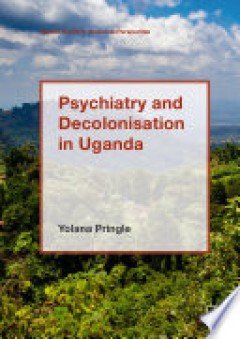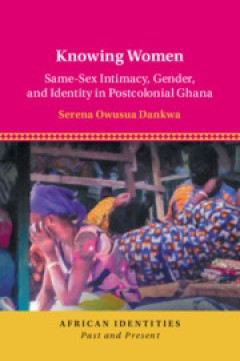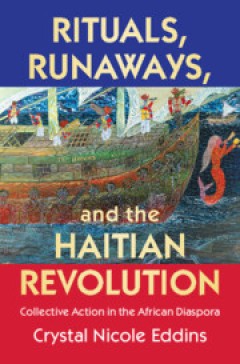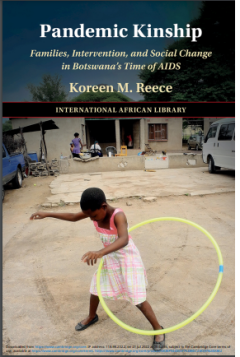Filter by

Psychiatry and decolonisation in Uganda
This open access book investigates psychiatry in Uganda during the years of decolonisation. It examines the challenges facing a new generation of psychiatrists as they took over responsibility for psychiatry at the end of empire, and explores the ways psychiatric practices were tied to shifting political and development priorities, periods of instability, and a broader context of transnational …
- Edition
- 1
- ISBN/ISSN
- 9781137600950
- Collation
- XII, 259p, ; ill.
- Series Title
- Mental health in historical perspective
- Call Number
- 616.890096761 PRI p

Knowing Women : Same-Sex Intimacy, Gender, and Identity in Postcolonial Ghana
Knowing Women is a study of same-sex desire in West Africa, which explores the lives and friendships of working-class women in southern Ghana who are intimately involved with each other. Based on in-depth research of the life histories of women in the region, Serena O. Dankwa highlights the vibrancy of everyday same-sex intimacies that have not been captured in a globally pervasive language of …
- Edition
- -
- ISBN/ISSN
- 9781108863575
- Collation
- ix, 332 p ; ill
- Series Title
- -
- Call Number
- 306.766309667 KNO S

CREATING THE CAPE COLONY : the political economy of settler colonisation
This open access book offers a detailed study of the foundation and expansion of the Dutch Cape Colony to ask why certain regions in the global south became European settler societies from the 16th century onwards. Examining the different factors that led to the creation of the Cape Colony, Erik Green reveals it was a gradual process, made up of ad hoc decisions, in which the agency of indigeno…
- Edition
- 4
- ISBN/ISSN
- 9781350258259
- Collation
- viii, 192p.
- Series Title
- -
- Call Number
- 916.8044 CRE g

Rituals, runaways, and the Haitian Revolution : collective action in the Afri…
The Haitian Revolution was perhaps the most successful slave rebellion in modern history; it created the first and only free and independent Black nation in the Americas. This book tells the story of how enslaved Africans forcibly brought to colonial Haiti through the trans-Atlantic slave trade used their cultural and religious heritages, social networks, and labor and militaristic skills to su…
- Edition
- Edisi 2
- ISBN/ISSN
- 9781009256148
- Collation
- xiii, 355p.: ill.
- Series Title
- -
- Call Number
- 305.89607294 EDD r

Pandemic Kinship : Families, Intervention, and Social Change in Botswana's Ti…
Shaped around the stories of one extended family, their friends, neighbours, and community, Pandemic Kinship provides an intimate portrait of everyday life in Botswana's time of AIDS. It challenges assumptions about a 'crisis of care' unfolding in the wake of the pandemic, showing that care - like other aspects of Tswana kinship - is routinely in crisis, and that the creative ways families navi…
- Edition
- -
- ISBN/ISSN
- 9781009150200
- Collation
- xiii, 328p, : ill
- Series Title
- -
- Call Number
- 306.85096883 KOR
 Computer Science, Information & General Works
Computer Science, Information & General Works  Philosophy & Psychology
Philosophy & Psychology  Religion
Religion  Social Sciences
Social Sciences  Language
Language  Pure Science
Pure Science  Applied Sciences
Applied Sciences  Art & Recreation
Art & Recreation  Literature
Literature  History & Geography
History & Geography